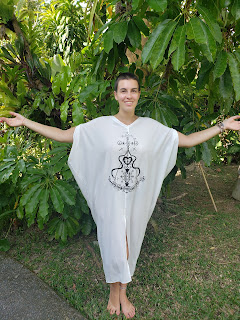Recycled Clothing Facts
Discarded Clothing
Americans discard an estimated 68 pounds of clothing a year, while
buying 10 pounds of recycled clothes. In 2006, 2.5 billion pounds of
fabric were kept from the landfills by used-clothing purchases. Yet about 99 percent of what is thrown away can be
recycled. Clothing and household
textiles, consisting of fabrics such as cotton, polyester, nylon and
rayon, make up almost 5 percent of the total garbage in landfills.
Environmental Benefits
There are multiple environmental benefits associated with recycling
clothing. It reduces the amount of pesticides used in growing cotton or
to make fabrics from petroleum sources and the water needed to dye
fabrics, and cuts down on the pollutants, greenhouse gases and volatile
organic compounds released into the water and air from manufacturing
processes.
Donation and Resale
Clothes are typically recycled by donating them to charities like the
Salvation Army or Goodwill Industries, which will provide tax forms for
deductions. You can also sell them at consignment stores for store
credit or cash or on the Internet through auction or donation sites.
Charities will either sell the used clothing and use the proceeds for
their work, or donate the items to the needy. About 20 percent of
clothing donations are turned over to thrift shops. The remainder, sold
to textile recyclers, can end up as wiping rags, insulation, upholstery
stuffing, ingredients in paper products or used clothing exports.
Benefits to the Consumer and the Industry
Customers who buy used clothing also benefit from what are usually substantially lower prices, compared to the price of new clothes. Recycled clothing also creates jobs at charity organizations, consignment stores and businesses that reuse the fabric to make products for sale. Cleaning rags, blankets, new clothes and even the U.S. dollar are examples of products that may contain fabric from recycled clothing. The U.S. textile recycling industry consists of about 2,000 companies, most of which are family-owned. They provide about 17,000 jobs and account for gross sales of $700 million every year.Source: nationalgeographic.com/



Comments